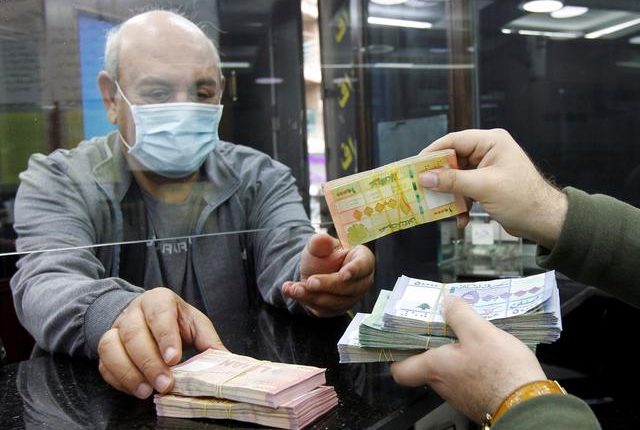Lebanon’s battered pound currency has slid to fresh lows against the U.S. dollar despite a new pricing system Beirut hopes can rein in soaring food prices as it negotiates a deal with the International Monetary Fund to climb out of crisis.
The pound has lost over 60% of its value since October, the result of a dwindling stock of dollars that has prompted banks to cut savers’ access to hard currency and ration dollars exclusively for fuel, medicine, and wheat at a pegged rate of 1,507.5 pounds.
One currency dealer said dollars on Wednesday were being bought at 4,250 and sold at 4,500. A second dealer said he was buying at 4,300 versus 4,100 a day earlier but not selling because of scarcity.
Importers said it was getting increasingly difficult to source enough dollars to complete orders, even at higher rates.
“Looking forward only a few weeks ahead, we may not be able to honour our engagements towards our suppliers,” said Hani Bohsali, general manager of Bohsali Foods, a major food importer.
The government and money changers last week launched a unified pricing system, with a gradually reduced rate announced each day with the aim of reaching 3,200 pounds.
As part of the scheme, money changers on Wednesday set a buying price of 3,890 and selling price of 3,940 and the central bank said dealers who did not comply would be penalised. Importers said dollars at this rate were unavailable.
The central bank said on Wednesday a new electronic foreign exchange trading platform would go live on June 23 as part of further efforts to stabilise the currency.
Under the new platform money changers will be required to enter the details of transactions into an electronic application and adhere to a buying and selling range set each morning by the central bank and subject to change throughout the day.
Lebanon’s dollar supply has been further hit by a currency crisis in neighbouring Syria. Syrians are piling into dollars to protect against inflation and hedge against the effect of impending U.S. sanctions.


